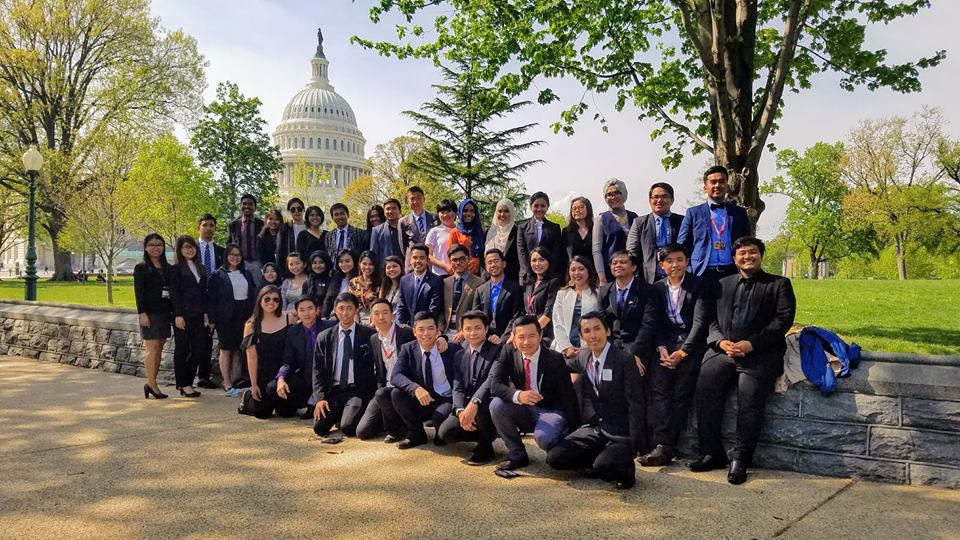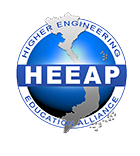Let me start by setting the scene. 42 fellows. Ten ASEAN countries. Five weeks. Mix that with a robust program schedule, community service projects, road trips and an affinity for karaoke, and you get the ASU YSEALI program.
The Young Southeast Asian Leaders Initiative, or YSEALI for short, is a leadership program set forth by the U.S. Department of State. The collaboration between nations provides a free and open exchange of educational and cultural ideas through academic programming and active learning. Armed with a playbook that held all of the YSEALI secrets, but mostly just the schedule, the staff were eager to meet the fellows just as much as the fellows were eager to meet their colleagues.
At the opening dinner of the YSEALI program, participants came dressed in traditional wear from their respective countries and cultures. Photo credit: Angelini Sollistifani
In early March, fellows from Thailand, Vietnam, Indonesia, Singapore, Brunei, Malaysia, Myanmar, Cambodia, Laos and the Philippines trickled into the Valley of the Sun with their sights set on Arizona State University. Setting up home base in Tempe, the young leaders were split into their respective cohorts of Social Enterprise and Economic Development (SEED) and Civic Engagement (CE). David Benson headed up the SEED institute at the Ira A. Fulton Schools of Engineering and Christine Buzinde lead the way for the CE institute at the College of Public Service and Community Solutions.
After just a few days of adjusting, the fellows began navigating their way through the main and downtown campuses, ready to immerse themselves in the classes of the day. While most academic sessions were done with their respective groups, like transformers, all 42 would band together when it came to the community service projects such as packing food with Feed My Starving Children and cleaning up the neighborhood for House of Refuge.
The trip wasn’t all work and no play, however. After all, what kind of hosts would we be if they didn’t have a little fun? So with signs reading “#1 fan from the Philippines” and “Traveled 7,683 miles for this!”, YSEALI headed to Talking Stick Resort Arena to watch the Phoenix Suns take on the Golden State Warriors. Coincidently, their visit to Chase Field had a similar Bay Area showdown when the Diamondbacks played the Giants. For many, attending professional sporting events was a first, but they soon got a taste of other leisure activities in the valley when they got to spend a weekend with local families for their homestays. Fellows visited museums, went to hockey games, got to enjoy mani/pedi’s (who doesn’t love that?) and hiked some of Arizona’s most popular trails. The cultural exchange was twofold as some of the fellows cooked delicious dishes native to their countries for their host families to try!
YSEALI fans proudly hold thier 7,683 miles sign at a Phoenix Suns game in Phoenix, Arizona. The game was truly a unique experience. Photo credit: Angelini Sollistifani
While each fellow traveled thousands of miles to get to the U.S., Arizona was not their final destination. They experienced the desert heat in Phoenix, the sunny beaches of Southern California, the urban landscape in San Francisco and the capital of the U.S., Washington D.C. Each environment told a different story about American history, like the natural wonders of Sedona narrated by the Navajo Nation or the cultural landmarks of the entertainment capital in California.
“It really makes me see the world with a different lens now”, said Kring Kring Gebe of the CE cohort, “Coming back to the Philippines is not a 'back to reality' kind of thing for me, but a whole new reality. I’m ready to embark on a journey with the U.S. in my heart.”
The weeks-long journey culminated in Washington D.C. There, the fellows presented to the U.S. Department of State, sharing their experiences, their takeaways and their inspiring stories of how they will continue to be active leaders of change in their communities. True to their love of music, the presentation was wrapped up with an original composition by the CE group titled, “Beautiful People”, a name Buzinde had used to affectionately refer to the cohorts.

All 42 young leaders of the YSEALI 2017 cohort at ASU gather together for a final photo in front of the White House. Photo credit: Jose Quiroga
A lot can transpire in a little over a month’s time. Roommates become friends, funny moments become inside jokes, the seeds to blossoming friendships were planted, turning the sadness of saying goodbye into the fuel that helps those relationships grow long past the program. When asked about her experience, Angelini Sollistifani of the SEED cohort said, “YSEALI fellowship at ASU? I couldn’t ask for more! They organized the program perfectly. ASU folks and YSEALI fellows bonded very well, feels like home and like we have a family in the U.S.”
So, what do you get with 42 fellows from ten ASEAN countries in five weeks? The answer is one beautiful family.
BY SUSSELY MORALES

